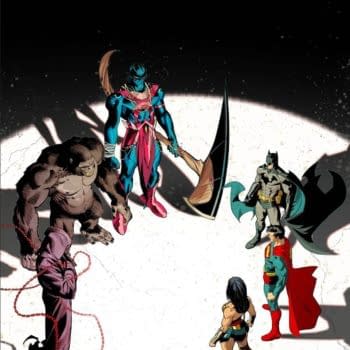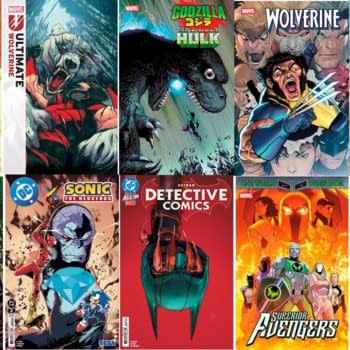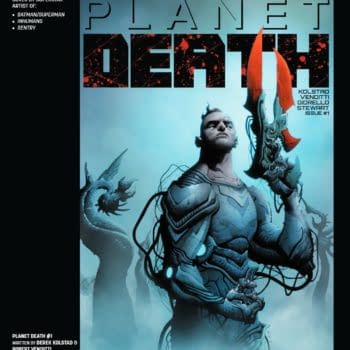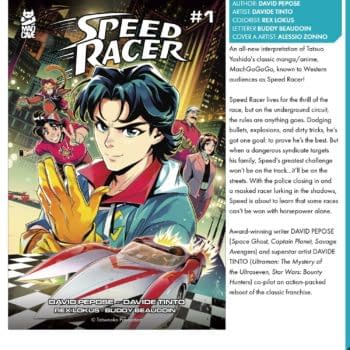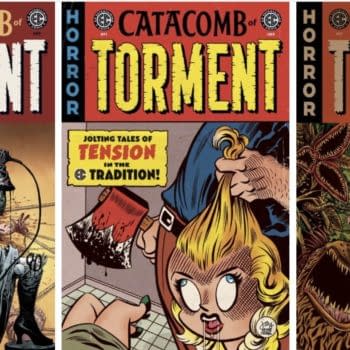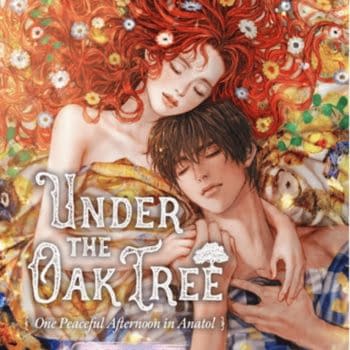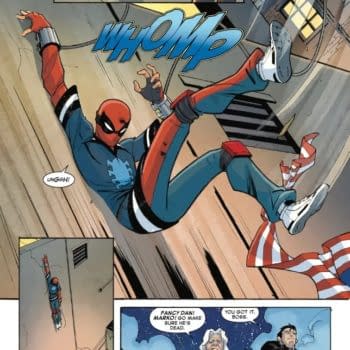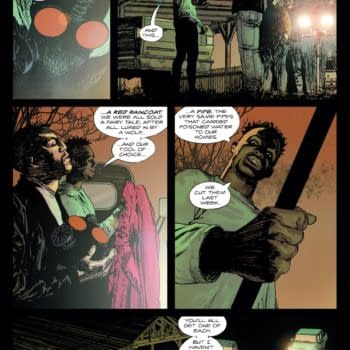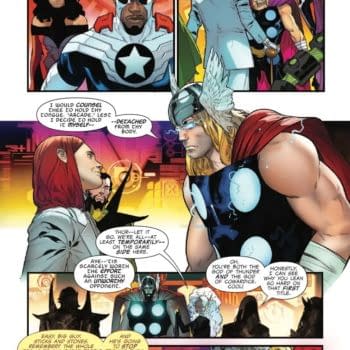Posted in: Comics | Tagged: Comics, small press, stumptown
Stumptown Swag: New Indie and Underground Titles
Gavin Lees wrote for Bleeding Cool from Stumptown last weekend;
While the offbeat panels and overall community spirit are certainly highlights of the Stumptown Comics Festival, the greatest thing about the show is the embarrassment of riches that the small-press and indie publishers have on display every year. From lavish hardcover titles to photocopied-and-stapled minicomics, there are hundreds of weird and wonderful titles on display, covering just about every genre imaginable.

Graphic Novels
Only Skin — Sean Ford (w/a)
This is the debut graphic novel from Sean Ford, published by the ever-exciting Secret Acres. It follows the lives of two orphans in what could easily be a post-apocalyptic world, but is actually modern rural America. The same desperation and unease that marks Cormac McCarthy's The Road is also present here, with some unexpected and surreal interjections of the supernatural that make for an unpredictable and thoroughly engaging narrative. It's all rendered in a style that recalls Dylan Horrocks and Craig Thompson, establishing Ford as a strong contender for the best new artist to emerge this year.
The Dream-Quest of Unknown Kadath – H.P. Lovecraft (w) Jason Thompson (a)
Funded by an enormously-successful Kickstarter campaign, this is a compilation of Thompson's various Lovecraft adaptations, with the long-form title story as its flagship. Thompson has a clear love and respect for the source material and draws the picaresque fantasy in an ornate and heavily-rendered style. The twist to this particular adaptation is that Randolph Carter, the protagonist, is drawn as a very simple, abstract figure (not quite a stick-man, but not far off it) setting him in clear juxtaposition to the unimaginable surroundings of the dream lands. It's a faithful adaptation and one that should satisfy even the most ardent of Lovecraft admirers.
Henry & Glenn Forever & Ever — Tom Neely (ed.)
This is a follow-up to 2010's runaway success, Henry & Glenn Forever, which imagined Henry Rollins and Glenn Danzig as domestic partners, and their day-to-day life with occasional appearances from Hall and Oates, their Satan-worshipping neighbours. While the first volume was more one-page gags and fan-art, this expands the concept to full comic strips from Tom Neely, Benjamin Marra and Ed Luce, with some accompanying pin-ups (Coop's take on Frazetta's Death Dealer as Henry & Glenn doing pony play fetish is priceless). For some, the joke may be wearing thin, but the contributors have enough genuine respect for Rollins and Danzig that it never feels mean-spirited, and there are enough in-jokes and genuine laughs to keep this fresh.
LVT: Chaos Reigns — Sean Christiansen, Suzette Smith (eds.)

Single-Creator Anthologies
Zegas #2 — Michel Fiffe (w/a)


Real Life is a self-contained story that forms part of Malachi Ward's Ritual series. Ward is a creator who can be tricky to pin-down, effortlessly switching from the SF of Expansion or his work on Prophet to the quiet domesticity of this current project. The tale is a real slow-burner that concerns a young modern couple's relationship whose nightmares and reality begin to intersect after a sudden power-outage in their apartment. While Ward shows very little on the surface, there are several layers to his tale which gradually reveal themselves in a creeping, insidious manner. While never going for outright horror, Real Life shares a kinship with Charles Burns's Black Hole and the darkest work of Raymond Carver.
Sleep Spell — Jesse Moynihan (w/a)
Jesse Moynihan's work on Forming for Nobrow helped to establish him as a powerful voice in modern comics. Working in the realm of New Fantasy, his work is part of a trend that includes Powr Mastrs and Prison Pit and is pushing the adventure serial back into the realm of art. This mini is told in a similar style to Forming but concerns itself with the career of an intergalactic artist. It's a humorous, yet thought-provoking little tale that serves as a great introduction to Moynihan's talents. It comes with an acetate cover that gives the package the look of an animation cell and lays bare Moynihan's own process.
Fo
There seems to be no stopping Joseph Lambert — not only was his debut collection I Will Bite You! nominated for the LA Times Book Prize, but he has also recently released his biography of Helen Keller for Disney's Hyperion Books. This is a neat little mini containing two stories that highlight many of the particular quirks of his art. "Food" is a wordless story that starts with a spaceman stealing a grilled-cheese sandwich and launches into a whimsical space fantasy, all revolving around food. The second tale "Fall" uses his characteristic technique of anthropomorphizing the weather, and has a father and son help the autumnal season to paint the leaves. They both have a sense of childlike wonder and play that makes the experimentation so much more joyous and inspiring.
American Psycho — Benjamin Marra (a)
Inspired by Raymond Pettibon's work for Black Flag, Ben Marra has created a series of illustrations of the motion picture, American Psycho. These were originally released in a self-published booklet, but have now been revised and expanded into a broadsheet-sized newsprint publication. Seeing Marra's spare, minimal work blown up to these huge proportions really emphasizes the point of this project — as an adaptation of an adaptation, he draws attention to the artifice and artificiality behind the shocking sexualized violence, and as such, manages to engage with themes from Ellis's original novel that were often overlooked in the movie. This is powerful, important art.










